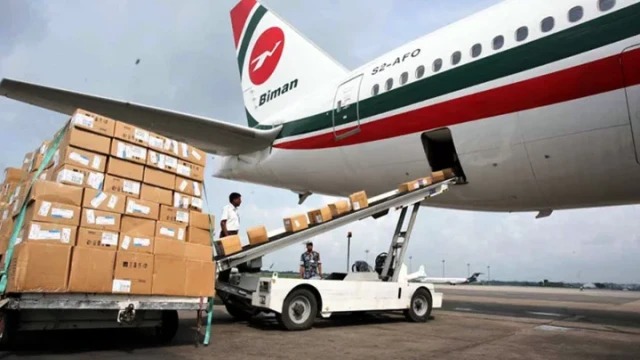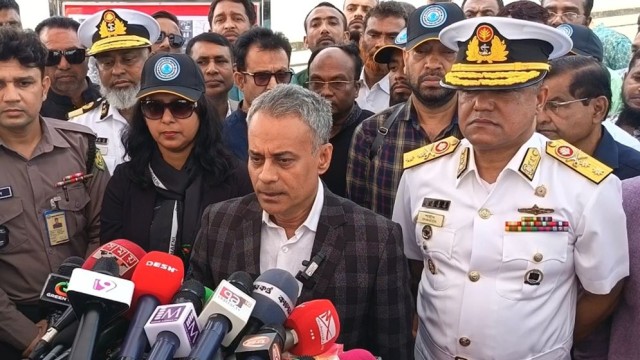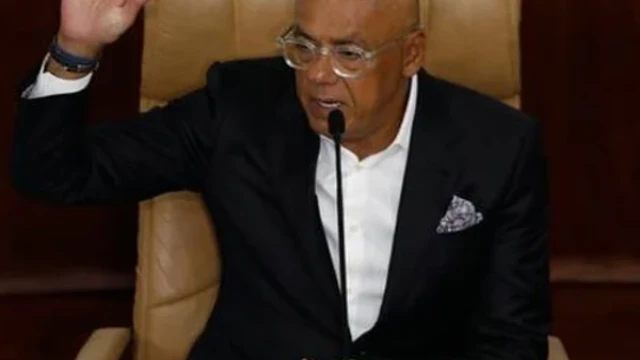Dhaka, Apr 20 (V7N)- In response to India’s abrupt suspension of transshipment facilities, Bangladesh is rapidly enhancing its cargo infrastructure to ensure smooth export operations—particularly for ready-made garments, the country’s largest export sector.
The Civil Aviation Authority of Bangladesh (CAAB) and Biman Bangladesh Airlines, the country’s sole ground-handling agent, are jointly leading the initiative to expand capacity, recruit manpower, and reduce transportation costs to maintain uninterrupted cargo movement.
Speaking on Friday, CAAB Chairman Air Vice Marshal Md. Manjur Kabir Bhuiyan stated, “We (CAAB and Biman) are working together to revise civil aviation and ground-handling tariffs to make cargo operations more affordable.”
He further announced that a task force, to be led by the Ministry of Civil Aviation and Tourism and comprised of all relevant stakeholders, will soon be formed to simplify and reduce the costs and procedures associated with cargo services.
“We have received high-level directives to ensure continuous cargo transportation despite external challenges,” Bhuiyan said. “We expect to announce reduced handling charges soon.”
To cope with the increased cargo pressure, additional manpower has already been deployed at the Hazrat Shahjalal International Airport cargo terminal. Moreover, full-scale cargo operations will launch at Osmani International Airport in Sylhet on April 27, with preparations underway to expand services to Chattogram Airport shortly.
The CAAB chairman visited Sylhet Airport on Friday to inspect progress, instructing officials to ensure the terminal is fully prepared by the scheduled launch date. He said, “Sylhet's state-of-the-art cargo terminal is capable of significantly boosting our handling capacity, and will allow us to process two to three times more cargo—well ahead of the third terminal’s opening in Dhaka.”
Biman Bangladesh Airlines Managing Director and CEO Dr. Md. Shafiqur Rahman added that new cargo staff are being recruited to accommodate the increased demand, triggered by the disruption in Indian transshipment routes.
Authorities are also accelerating customs clearance processes to facilitate faster cargo movement and support exporters amid the current crisis.
END/MSS/AJ






























Comment: